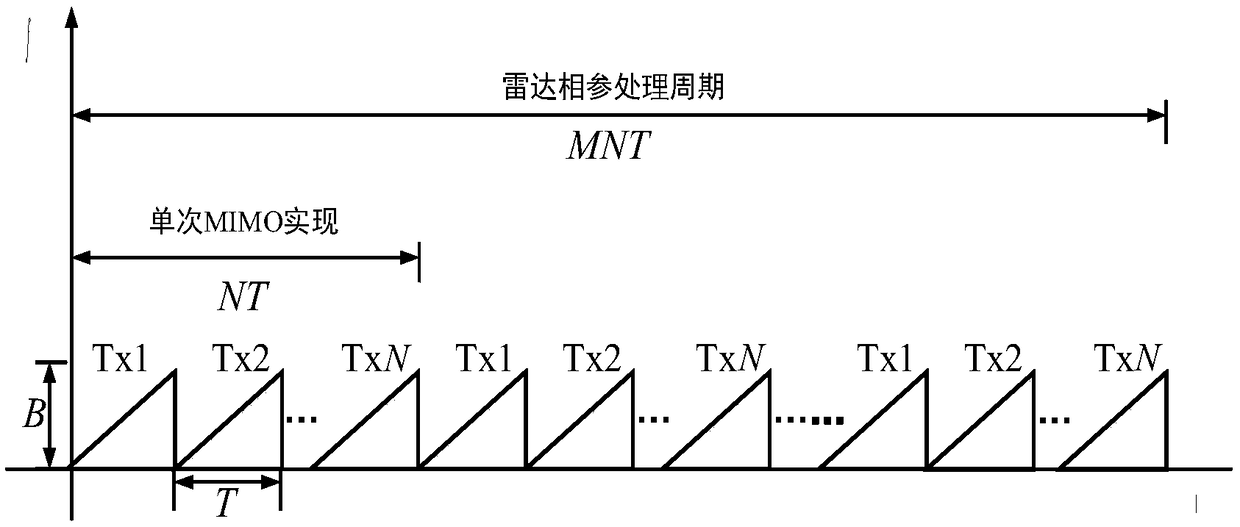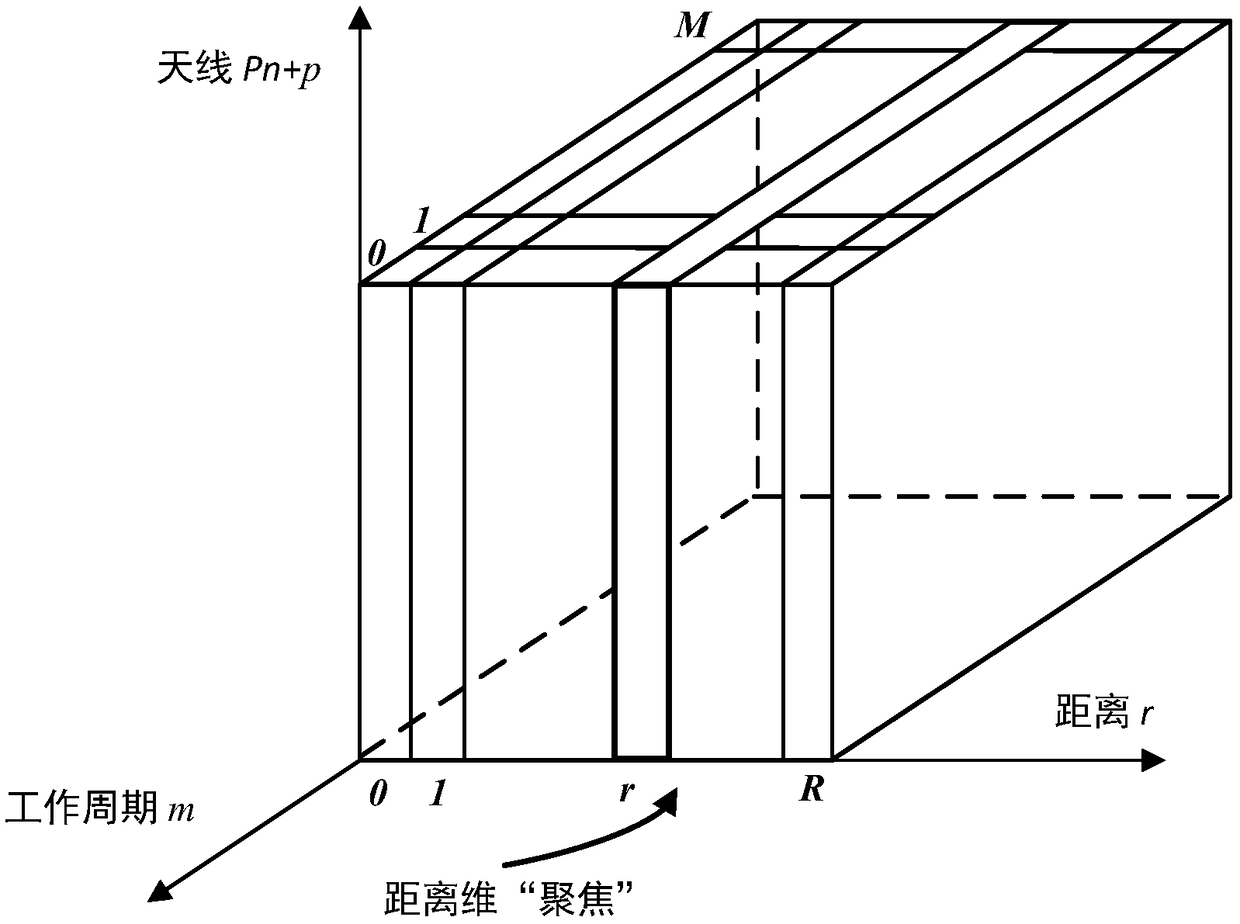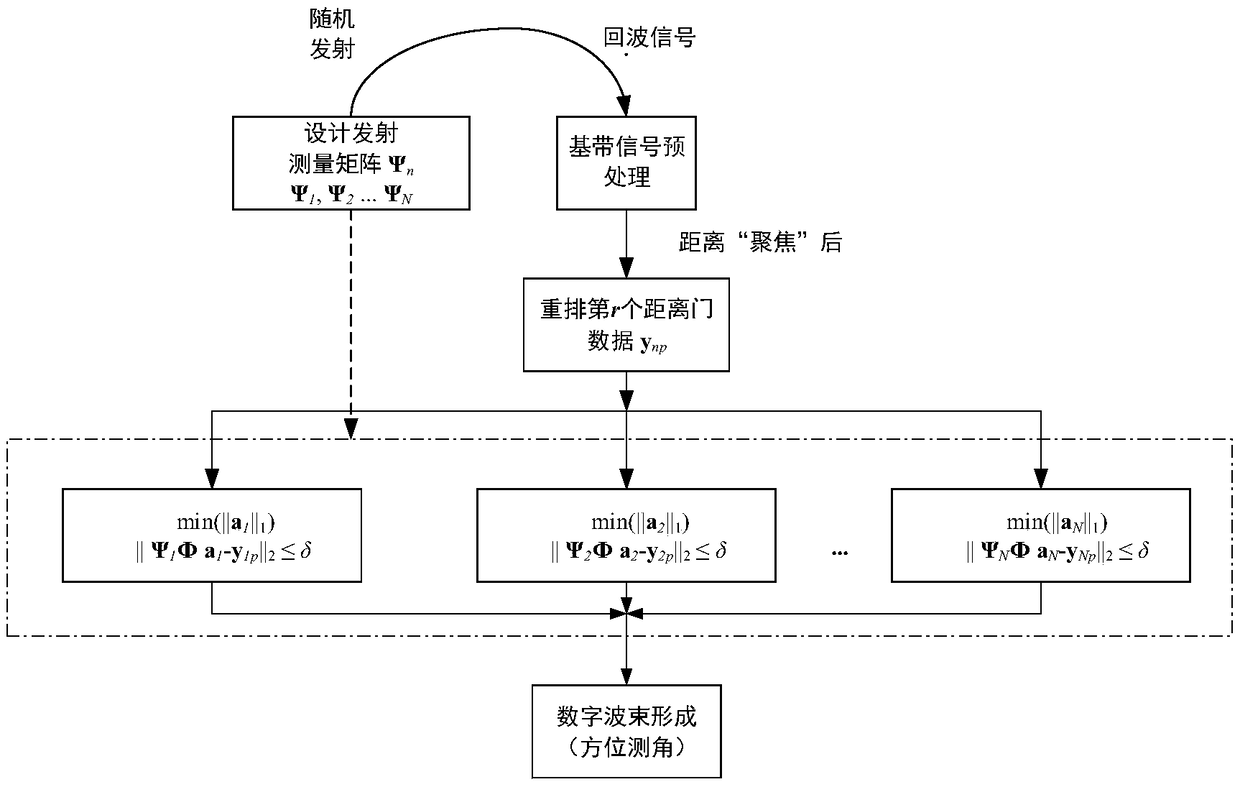Time-division MIMO radar space-time phase decoupling method based on random transmitted pulse
A technology for transmitting pulses and radars, applied in the field of multiple-input and multiple-output radars, which can solve problems such as wrong angle estimation, incorrect calculation of compensation phase, and decoupling phase errors
- Summary
- Abstract
- Description
- Claims
- Application Information
AI Technical Summary
Problems solved by technology
Method used
Image
Examples
Embodiment Construction
[0024] The implementation of the method of the present invention will be described in detail below in conjunction with the accompanying drawings.
[0025] like image 3 As shown, a sparse reconstruction technique and a matched filter technique are used to independently reconstruct the target Doppler spectrum and the target spatial spectrum from the random transmitted pulse sequence, and then solve the problem of space-time phase coupling of moving targets in TDM-MIMO radar. method, the specific process is:
[0026] Step 1. Design a random emission measurement matrix, obtain the sequence of controlling the random switching of the emission array elements through the measurement matrix, and replace the original emission element periodic time-division scheme with the pulse emission sequence according to the space placement position with the random emission time-division scheme, to achieve The effect of decoupling the angular velocity information of the moving target.
[0027] St...
PUM
 Login to View More
Login to View More Abstract
Description
Claims
Application Information
 Login to View More
Login to View More - R&D
- Intellectual Property
- Life Sciences
- Materials
- Tech Scout
- Unparalleled Data Quality
- Higher Quality Content
- 60% Fewer Hallucinations
Browse by: Latest US Patents, China's latest patents, Technical Efficacy Thesaurus, Application Domain, Technology Topic, Popular Technical Reports.
© 2025 PatSnap. All rights reserved.Legal|Privacy policy|Modern Slavery Act Transparency Statement|Sitemap|About US| Contact US: help@patsnap.com



